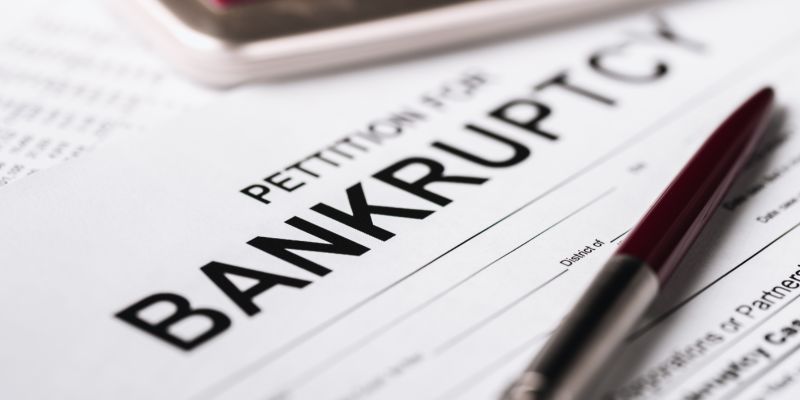If someone sues you for debt and that person wins the civil claim, you will face a judgment. Often, this court order describes the conditions and timeline for repaying the debt. Facing a judgment can leave debtors feeling hopeless, but there are often remedies for those punitive rulings. One means of protecting your assets is through filing for bankruptcy. You may be wondering what effect bankruptcy has on judgments.
Anyone who has significant debt that has not been repaid in a timely manner may be subject to a civil claim. Typically, this process begins when the debtor is served with legal documents. At this point, many debtors seek legal counsel. Once the debtor is served notice of the claim, they have a window of time to respond. Failing to reply could result in what is known as a default judgment.
If the creditor wins the claim, a judge will issue a judgment. Remember, a judgment is not an order to immediately repay the debt. The order typically lays out the framework for repaying the creditor. Even at this stage, there are legal remedies available to debtors, including the option to file for bankruptcy.

Filing for bankruptcy can help anyone who was issued an order to repay debt. Understanding what type of debt can and can’t be erased requires an understanding of dischargeable vs. non-dischargeable debt.
Dischargeable debt refers to outstanding balances that can lawfully be reduced or eliminated through bankruptcy filings. These include debts like credit card debt, personal debts, and medical bills, among others. During your consultation with a skilled bankruptcy attorney, they can go over your debts and explain which debts may qualify as dischargeable.
Non-dischargeable debts cannot be reduced or eliminated through bankruptcy proceedings. Examples of these types of debt include:
Depending on the circumstances of your case, certain debts obtained by fraud may not be eligible for being discharged.
Understandably, many people’s primary concern is keeping their home and property following a judgment. Your attorney can help you determine if the judgment allows the creditor to place a lien on your property. A judgment lien allows the creditor to effectively take ownership of your home. While this is a powerful tool for creditors, filing bankruptcy can also be an effective tool to counteract liens.
Your attorney will determine if the original debt is dischargeable. If the creditor asks the court to make your home or property non-dischargeable, your attorney will argue on your behalf against the creditor’s arguments. Removing a lien may require additional steps, such as the filing of a lien avoidance action.
While filing for bankruptcy comes with many advantages, there are alternatives to this option. Contacting the creditors directly, working with a debt consolidation firm, and pursuing the sale of your home are options. If you have questions about the pros and cons of filing for bankruptcy, the attorneys of Steele Law Firm, PLLC, are here to help.
A: The short answer is that it depends on the type of debt. There are often advantages to filing for bankruptcy following an unfavorable judgment. If you have any questions about what types of debt are dischargeable, an attorney will be glad to help you understand your legal options. Even after a judgment, you may be able to reduce or eliminate credit card and medical debt by filing for bankruptcy with the help of an experienced attorney.
A: There are many benefits to filing for bankruptcy, especially following an unfavorable judgment. One drawback is the negative impact on your credit score. This can last up to 10 years. There are no guarantees that filing for bankruptcy will completely eliminate your debt or remove a creditor lien on your home. Making the decision to file for bankruptcy is an important one that should be made in consultation with a trusted bankruptcy attorney.
A: If a court judgment allows creditors to seize your personal property, you may have your wages garnished. A judgment in favor of creditors may authorize them to place a lien on your home. They may be authorized to take or repossess anything from vehicles to household goods. Prompt legal action from an experienced attorney can often prevent those seizures. One effective means of protecting your property is by filing for bankruptcy.
A: A creditor can often renew a judgment until a debt is repaid. A property lien can be renewed for an additional 20 years under Texas law. The creditor must file for renewal in a timely manner, or certain deadlines will be missed. If you have concerns that a judgment will be renewed, one of our attorneys can explain the state laws that govern judgment renewals in Texas.
A: Texas’s exemptions for motor vehicles are generous, and judges understand that cars are vital for life and work. Anyone who files for Chapter 7 bankruptcy can usually request to retain one car per licensed driver. Those protections can only be afforded through bankruptcy proceedings, though.
Being sued for debt and having an unfavorable judgment can lead to stress and worries about whether you will lose valuable property and assets. Bankruptcy laws are in place to protect you from those worst-case scenarios. With the right legal counsel, you can protect your assets and potentially discharge certain types of debt. This can be done even after a judgment is awarded in favor of the creditor.
Don’t wait to protect your home and assets. Contact our office today to schedule a consultation with one of our bankruptcy attorneys.




